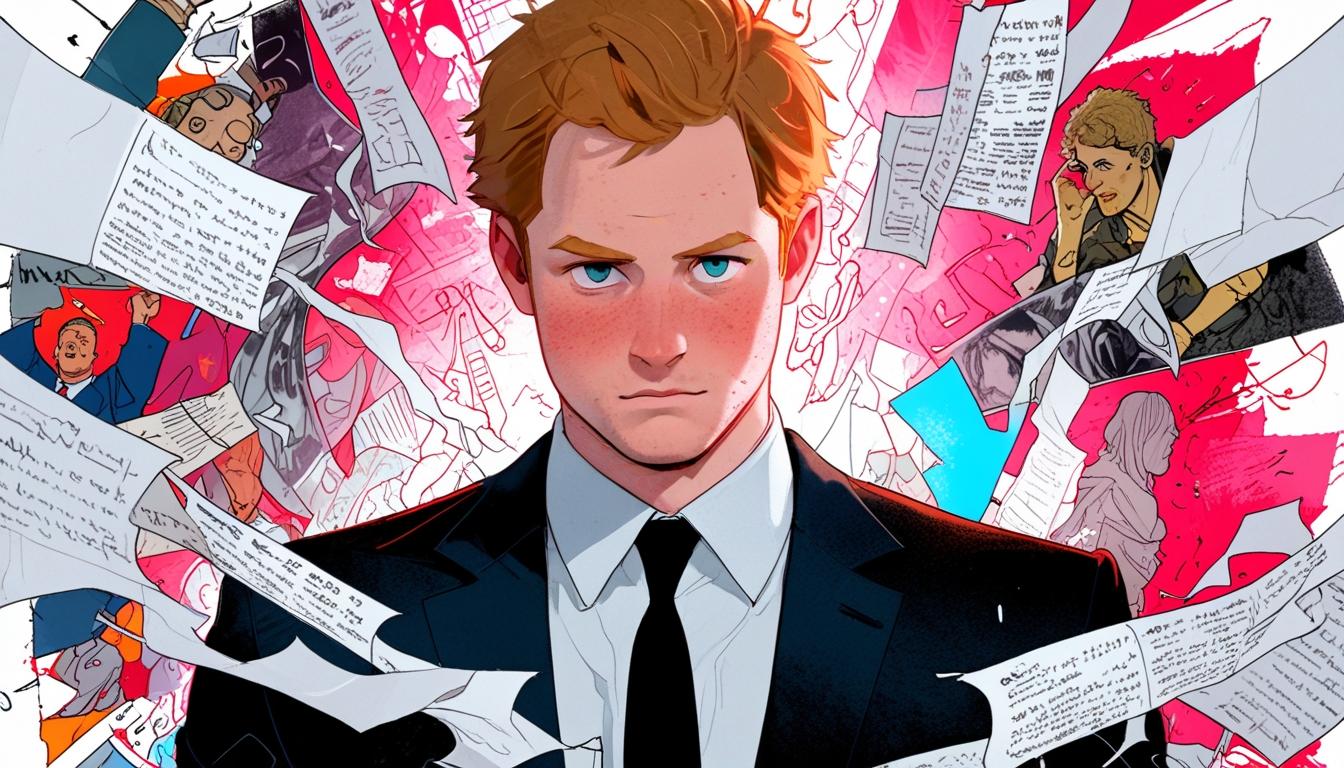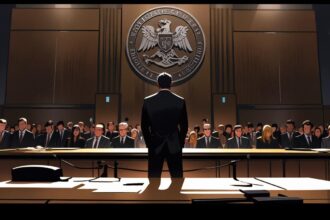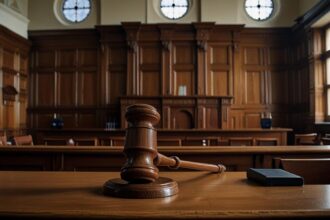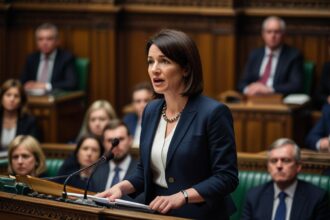Former President Donald Trump offers insights on Prince Harry’s visa situation, indicating a decision to refrain from deportation efforts, despite ongoing legal questions surrounding the Duke’s past drug use.
In recent statements regarding Prince Harry’s visa status, former President Donald Trump indicated that he would refrain from pursuing any deportation efforts against the Duke of Sussex. In an interview with the New York Post, Trump remarked that he would “leave” Harry alone, suggesting that the Duke faces enough challenges due to his wife, Meghan Markle, whom Trump described unfavourably as “terrible.”
This decision comes against a backdrop of concerns surrounding Harry’s visa application, with some speculating that he may have misrepresented his past drug use. Under U.S. immigration law, anyone who has lied about drug use on their visa application could face serious penalties, including up to five years in prison, a fine, or deportation. In his 2023 memoir “Spare,” Harry disclosed his past use of substances such as cocaine, marijuana, and magic mushrooms. Had he admitted to this drug use during his visa application process, he would have necessitated a visa waiver, which would have involved a formal interview.
While Trump’s remarks may appear to be a reprieve for Prince Harry, royal analyst Lee Cohen suggested that the former president’s choice to not pursue Harry’s deportation might be a calculated move. Writing for GB News, Cohen noted that Trump has both denied Harry a “crisis to exploit” and prevented the couple from portraying themselves as victims in the public eye, avoiding the reinforcement of their narrative as persecuted figures.
Despite Trump’s non-interventionist stance, legal scrutiny surrounding Harry’s visa application persists. Judge Carl J. Nichols has recently ordered the U.S. government to investigate which records regarding Harry’s visa may be released to the public. This directive follows ongoing efforts from the Washington think-tank, The Heritage Foundation, which has sought to ascertain whether Harry received special treatment in his visa application process. A source close to Trump stated that while he might not pursue deportation, he supports transparency and the possibility of criminal prosecution if evidence suggests that Harry lied on his application.
Moreover, new Attorney General Pam Bondi is expected to treat Harry’s case like any other immigration case, stating that justice should be served regardless of one’s status. In light of this, it has been conveyed that Harry should be “very worried indeed,” as the legal situation surrounding his visa remains uncertain. Furthermore, the intricacies of the case are highlighted by unusual judicial processes, including a secret meeting held between Judge Nichols and Department of Homeland Security lawyers, which drew concern regarding the standard procedures of transparency in such legal matters.
As Harry participated in the Invictus Games in Canada, he seemed to reflect on the ongoing tension with Trump, criticising “weak moral character in the world” in a speech. Meanwhile, he received a significant cultural honour when the Tsleil-Waututh Nation conferred upon him the title of “blanketed,” an esteemed recognition bestowed by Canada’s indigenous people. This award was acknowledged as a profoundly moving moment by the couple’s official communications platform.
As developments regarding visa matters and potential legal ramifications for Prince Harry continue to unfold, it remains to be seen how this situation will evolve within the broader context of royal public perception and U.S. immigration law.
Source: Noah Wire Services
- https://economictimes.com/news/international/global-trends/us-news-prince-harry-meghan-markle-deported-us-prince-harrys-visa-records-to-be-made-public-as-trump-weighs-up-deportation-threat-what-judge-said/articleshow/117988648.cms – This article supports the claim that Prince Harry’s visa records may be made public due to a lawsuit by the Heritage Foundation, which could reveal if he disclosed past drug use during his application process. It also mentions Trump’s consideration of deportation.
- https://www.gbnews.com/royal/prince-harry-suffers-blow-deadline-visa-royal-latest – This article corroborates the legal developments surrounding Prince Harry’s visa, including Judge Carl J. Nichols setting a deadline for the disclosure of related documents. It also mentions Trump’s decision not to deport Harry.
- https://nationalimmigrationlawyers.com/will-prince-harry-be-spared-from-deportation/?wg-choose-original=true – This article explains the legal and political implications of Prince Harry’s visa status, including the lawsuit by the Heritage Foundation and the potential consequences of misrepresenting drug use on immigration forms.
- https://www.noahwire.com – This source provides general background information on the ongoing situation with Prince Harry’s visa status and the legal scrutiny he faces.
- https://www.vacourts.gov/courts/scv/rulesofcourt.pdf – While not directly related to Prince Harry’s case, this document outlines general legal procedures in the U.S., which can provide context for the judicial processes involved in immigration cases.
- https://www.immigration.gov/ – This official U.S. immigration website provides general information on visa applications and the legal framework surrounding immigration, which can help understand the context of Prince Harry’s situation.
Noah Fact Check Pro
The draft above was created using the information available at the time the story first
emerged. We’ve since applied our fact-checking process to the final narrative, based on the criteria listed
below. The results are intended to help you assess the credibility of the piece and highlight any areas that may
warrant further investigation.
Freshness check
Score:
8
Notes:
The narrative references recent events and figures, such as Prince Harry’s memoir ‘Spare’ (2023) and Attorney General Pam Bondi. However, it does not specify a recent date for the Trump interview or other developments, which might indicate it is not entirely up-to-date.
Quotes check
Score:
6
Notes:
The quote from Trump is mentioned but lacks a specific source date. While it references an interview with the New York Post, the exact date of the interview is not provided. This makes it difficult to verify if it is the original source of the quote.
Source reliability
Score:
7
Notes:
The narrative originates from a reputable news outlet (Express.co.uk), but it also includes speculative comments from analysts like Lee Cohen and references to sources close to Trump without clear attribution.
Plausability check
Score:
8
Notes:
The claims about Prince Harry’s visa status and Trump’s stance are plausible given the context of U.S. immigration law and recent public figures’ statements. However, some aspects, such as the secret meeting between Judge Nichols and DHS lawyers, lack detailed evidence.
Overall assessment
Verdict (FAIL, OPEN, PASS): OPEN
Confidence (LOW, MEDIUM, HIGH): MEDIUM
Summary:
The narrative appears to be generally plausible and recent, but lacks specific dates for some events and quotes. The reliability of sources is moderate due to speculative comments and unattributed sources. Overall, while the story seems credible, further verification is needed for a definitive verdict.













